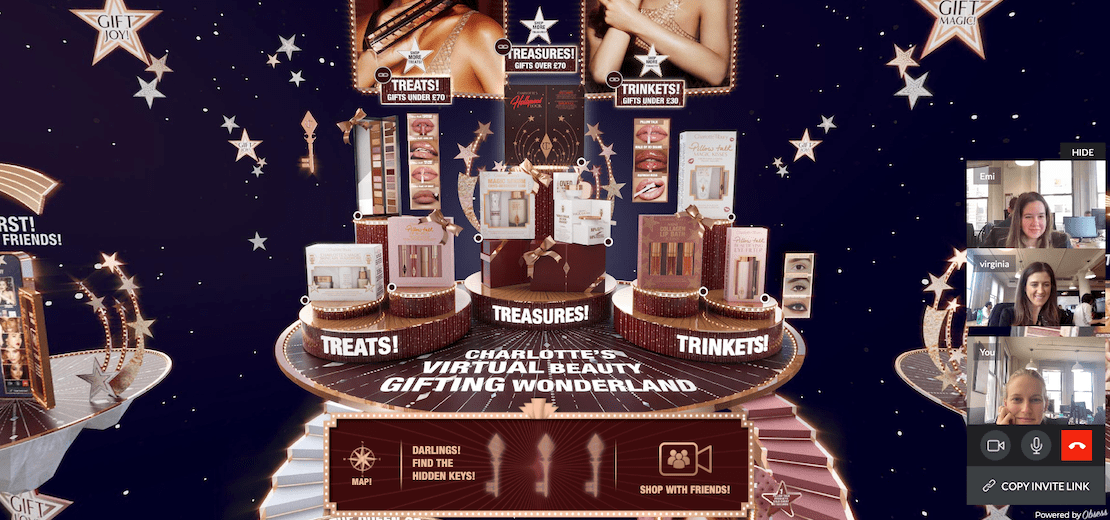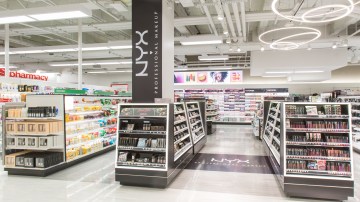A year after launching its VR online store, Charlotte Tilbury is doubling down on the format with a new social shopping feature.
Called “Shop With Friends,” the new capability rolls out in Tilbury’s VR store today. It allows customers to add up to four people in a video chat as they browse through the virtual shopping experience. Users can invite friends into the shop by sharing a link through their email, and the experience works on both desktop and mobile. Next year, a feature will be added to allow people to create avatars of themselves to walk around the virtual store, bringing Charlotte Tilbury further into the “metaverse” of online shopping.
“What ‘metaverse’ means is that it’s sort of like the 3D version of the internet,” said Neha Singh, founder and CEO of tech startup Obsess, which provides the software platform for the the Tilbury virtual store. “The other key components of a metaverse is that you are personified as an avatar and that you are now inside the internet and experiencing it versus just looking at it on a flat screen.”
The feature was launched after the brand received feedback that customers were going into the VR store while on Zoom calls with their friends.
“Digital innovation is at the heart of everything we do and I am so excited that we can bring this beauty tech to life,” said Charlotte Tilbury.
“We have always been a digital-first brand and by launching this new feature within our virtual store, we are truly operating as an omnichannel business to bring our customers rich and immersive experiences whenever and wherever they meet the brand,” said Charlotte Tilbury chief growth & technology officer Corinne Suchy.
“For brands and for shopping, it’s such a perfect format because the products you’re buying are 3D. Brands want to create experiences, so the metaverse is a perfect fit. That’s why we are seeing so much interest,” said Singh.
The new feature launches as “metaverse” has become a tech buzzword. On October 28, Facebook changed its name to “Meta” to focus on the metaverse and virtual avatars.
Fashion brands have entered the metaverse in a variety of ways. Gaming has been a growing option as Balenciaga announced the launch of fashion looks in the online game Fortnite in September this year, and Selfridges created a virtual shopping experience in collaboration with Pokemon in October.
Obsess is working on creating virtual stores that are capable of functioning on Fortnite and Roblox.
“Ultimately, the metaverse is like the new mall, because people in these games are not just playing games. They’re just hanging out, [too],” said Singh.
Charlotte Tilbury’s VR store also has a game function, asking people to click around the store to find and collect hidden keys.
The company has also invested in gaming-related marketing by announcing its sponsorship of the Girlgamer Esports Festival in August this year.
Pandemic reopenings have not slowed brands’ interest in the metaverse.
Virtual shopping “was something before that brands were looking at as an experimental area. They knew that, at some point in the future, they would have to think about it,” said Singh. “But the pandemic really accelerated that. And since the stores reopened last year, it didn’t really slow down the virtual store business.”
In addition to social shopping with friends, brands see other uses for avatar-based virtual shopping.
“As we talk to brands that want to use this feature, it is not just [about facilitating shopping] with friends, but also with sales associates or influencers who can lead you through the store,” said Singh of its future uses.




